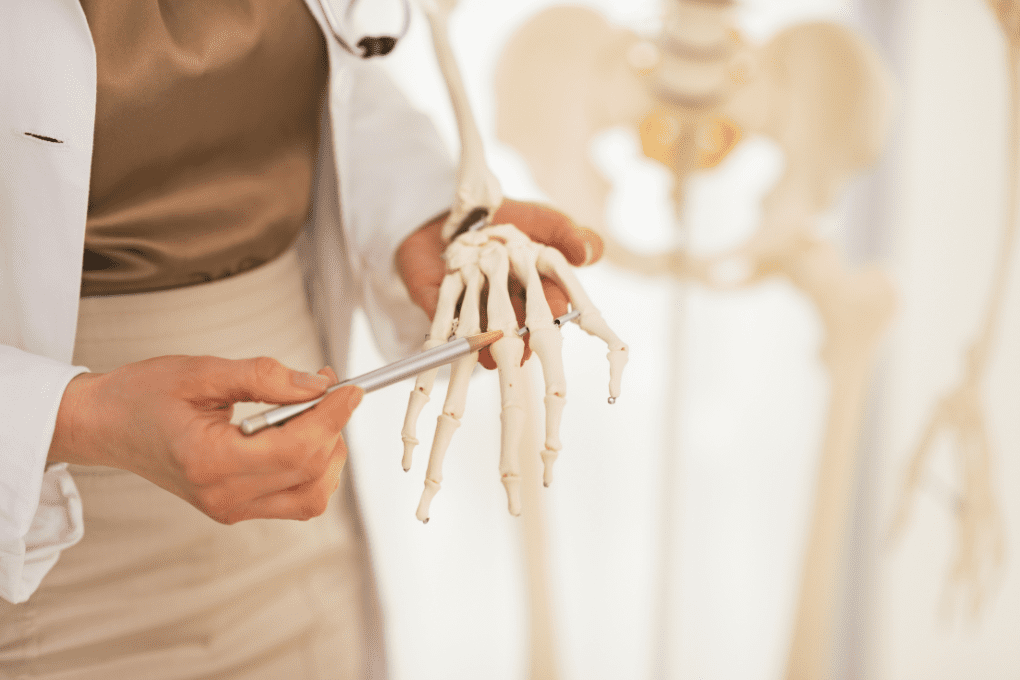 Dairy and Bone Health
Dairy and Bone Health
Our bones and skeleton support us every day. Milk and dairy products like milk, cheese, and yogurt promote bone health by providing key nutrients including calcium, vitamin D, and others, to build and repair bones.
When these nutrients are missing, bones can become weak or brittle, causing fractures and breaks as leading to a bone disease osteoporosis. The good news is that eating dairy foods like milk, cheese, and yogurt throughout childhood, adolescence, and adulthood can help keep your bones healthy.
Does Milk Build Strong Bones?
Yes, milk can help build strong bones. Our bones and teeth are made up of vitamins, minerals and other nutrients. As rigid as our bones may seem, the skeleton is constantly breaking down and repairing itself. This is why bone is considered a living tissue.
Milk and dairy foods make your bones stronger by delivering these key nutrients your body needs in an affordable, versatile package:
Calcium
Calcium is a mineral that supports the building and maintaining bone structure. Most of the calcium you have is stored in your bones and teeth. Your body will pull calcium out of bones when needed for use elsewhere. Your bones will require more calcium to replace this loss.
Vitamin D
Vitamin D helps move calcium in our intestines into bones. Your body can make vitamin D with exposure to sunlight, but the amount can be limited by age, where you live, and other factors. Milk processors have added vitamin D to dairy products since the 1930’s as a public health measure to help prevent rickets- a serious bone disease in children. Today this practice ensures we have enough vitamin D to make use of the calcium we eat. This is a nutrient that most kids and adults do not get enough of.
Vitamin A
Vitamin A supports development of new bone cells and teeth. This nutrient occurs naturally in milk but is removed during processing to make low fat and fat free products. Processors add vitamin A back to replenish the levels that were removed during processing.
Phosphorous
Phosphorous is a mineral that works with calcium to supports building and maintaining bone structure.
Potassium
Potassium is a mineral that helps to prevent bone loss and preserve bone density. This is a nutrient that most kids and adults do not get enough of.
Magnesium
Magnesium is a mineral helps support bone density and strength.
Protein
Protein helps in the process of building bone tissue by acting as glue for bone minerals. It also contributes to muscle mass which in later years can help preserve bone density.
The majority of the calcium in our body exists in the bones and teeth. The rest is in our blood and is tightly controlled. If the brain senses that calcium blood levels are low, three things happen:
- Calcium and phosphorus are released from the bone tissue (to replenish blood levels).
- The kidneys are signaled to reabsorb calcium.
- The kidneys convert vitamin D into its active form, which travels to the gut to help absorb calcium from what we eat and drink.
Other Ways to Promote Bone Health
Dairy foods offer one way to help keep bones strong and healthy but other factors are necessary. Regular exercise, including weight bearing and strength exercises, are crucial for building and maintaining muscle density throughout adulthood.

 Dairy and Bone Health
Dairy and Bone Health